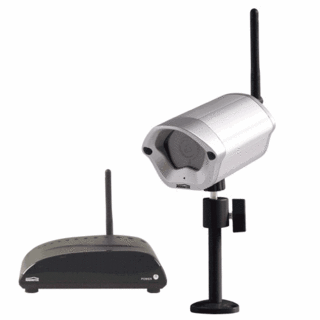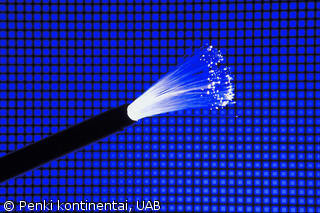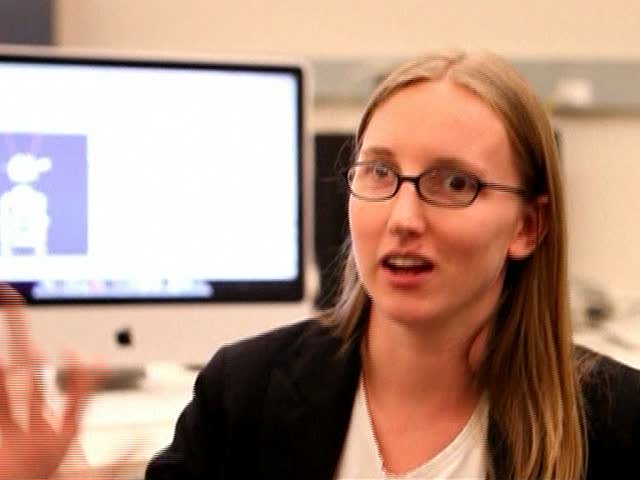President Clinton proposed boosting government spending on computer security by some $280 million as part of a long-term plan to guard against threats ranging from hackers to terrorists.
Published:
9 January 2000 y., Sunday
Clinton_s plan to defend America_s "information infrastructure," includes a $160 million increase in spending on computer security research, college scholarships for students who agree to work for the government as security specialists and plans to share public and private research.
Potential threats ranged from the hobbyist-hacker to countries or terrorists attacking U.S. computer systems to cripple the economy, said Richard Clarke, head of counterterrorism for the U.S. National Security Council.
Republicans involved in the issue generally welcomed the plan, but said it came late and fell short in some areas. The White House had targeted a May 1999 deadline, and officials said on Friday they needed more time to do the job right.
Clinton will request $2.03 billion for computer security in his 2001 budget request next month, up from $1.75 billion in 2000, White House Chief of Staff John Podesta told reporters.
Included are boosts in research spending on information security to $621 million from $461 million, and $91 million in new initiatives. Other related increases brought the total spending increase next year to $280 million, officials said.
Clinton proposed offering college scholarships to students in the field of computer security in exchange for their government service afterward.
Starting pay for such recruits, who are in high demand in the private sector, may need to be sharply increased from existing government pay scales, Clarke said.
Clinton also proposed an institute to fund research in areas not pursued now by either the public or private sector.
Copying, publishing, announcing any information from the News.lt portal without written permission of News.lt editorial office is prohibited.
The most popular articles
Software company announced new structure_ of it_s business.
more »
 Just a few weeks ago, the world's tiniest video camera was as small as a grain of rice. Today, the world's NanoEst camera is even smaller.
more »
Just a few weeks ago, the world's tiniest video camera was as small as a grain of rice. Today, the world's NanoEst camera is even smaller.
more »
 During the experiment two research groups managed to overcome a symbolic 100 TB/s optical fiber data transmission speed limit.
more »
During the experiment two research groups managed to overcome a symbolic 100 TB/s optical fiber data transmission speed limit.
more »
 Apple’s long–awaited online storage service for iTunes could be named iCloud, if only rumours are to be believed.
more »
Apple’s long–awaited online storage service for iTunes could be named iCloud, if only rumours are to be believed.
more »
 The founders of video-sharing site YouTube have bought bookmarking service Delicious from Yahoo.
more »
The founders of video-sharing site YouTube have bought bookmarking service Delicious from Yahoo.
more »
 The successful raid by hackers on Sony’s PlayStation Network is already being ranked among the biggest data thefts of all time.
more »
The successful raid by hackers on Sony’s PlayStation Network is already being ranked among the biggest data thefts of all time.
more »
 Apple has denied that its iPhones and 3G iPads have been secretly recording their owners' movements.
more »
Apple has denied that its iPhones and 3G iPads have been secretly recording their owners' movements.
more »
 Customers who have waited nearly 10 months for the white version of the iPhone 4 won’t have to wait much longer. The Great White iPhone 4 is finally here.
more »
Customers who have waited nearly 10 months for the white version of the iPhone 4 won’t have to wait much longer. The Great White iPhone 4 is finally here.
more »
 Researchers at Georgia Tech University are teaching a robot the basics of dialogue. Named "Simon", the robot has already been taught how to attract a person's attention but eventually, it's hoped he'll be able to interact and converse with humans in daily life.
more »
Researchers at Georgia Tech University are teaching a robot the basics of dialogue. Named "Simon", the robot has already been taught how to attract a person's attention but eventually, it's hoped he'll be able to interact and converse with humans in daily life.
more »
 3D? Terribly lame when it's tossed into devices as a bullet point feature. Trimensional for iPhone takes a picture of your face and maps your mug in a 3D model.
more »
3D? Terribly lame when it's tossed into devices as a bullet point feature. Trimensional for iPhone takes a picture of your face and maps your mug in a 3D model.
more »
 The European Union is to investigate whether internet service providers (ISPs) are providing fair access to online services.
more »
The European Union is to investigate whether internet service providers (ISPs) are providing fair access to online services.
more »